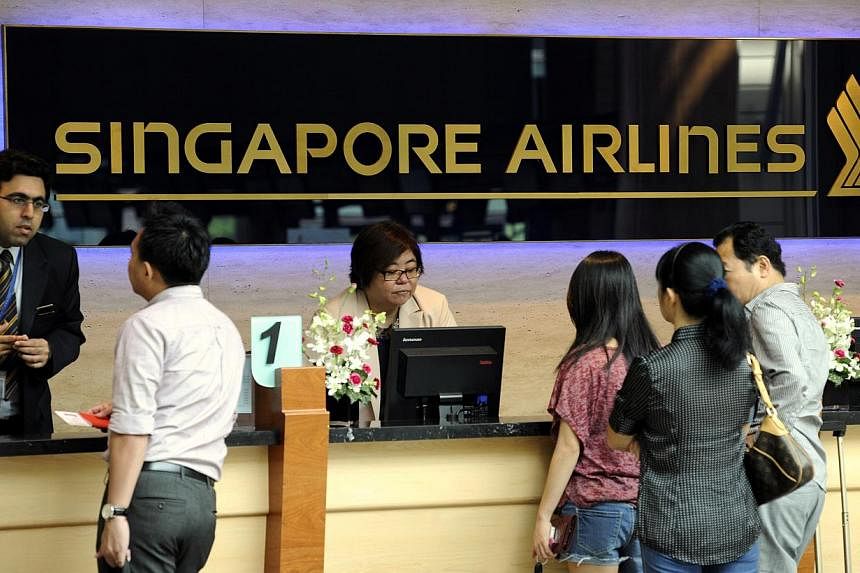When Singapore Airlines (SIA) said on Monday that it would honour hundreds of business class fares mistakenly sold at economy rates, this was probably out of goodwill rather than any legal obligation, a law academic has argued.
Singapore Management University Associate Professor Goh Yihan believes SIA would have had the law on its side on two counts: A similar previous case in which the court ruled against the buyers, and the Electronic Transactions Act governing online purchases.
The apparent mix-up led to tickets being sold online for as much as A$5,000 (S$5,500) cheaper than they should have been for flights between Australia and Asia and Europe.
Prof Goh wrote in the Singapore Law Blog on Tuesday that "assuming that domestic contract law applied to the facts, SIA's eventual decision to honour the cheaper rates was probably not legally mandated, but a move to preserve goodwill among its passengers".
The blog, supported by the Singapore Academy of Law, is dedicated to discussion of legal issues and reviews.
Prof Goh points to a 2004 High Court case in which buyers snapped up 1,606 commercial laser printers online mistakenly priced at $66 each, when the actual price was $3,854. In sum, printers worth $6.2 million were sold for about $106,000.
The court ruled that the seller had made a mistake in posting the wrong price online and that the great price disparity should have been obvious to the buyer.
The contract between the two was therefore void because of the seller's unilateral mistake.
Prof Goh also points to the 2011 Electronic Transactions Act, which provides another level of protection to online retailers.
The Act makes clear that a price offered online is not an offer to be accepted by the buyer, but is, instead, an invitation to the consumer to make the offer to buy, which, in turn, is left to the seller to accept.
"This means that pricing errors would not be legal offers capable of forming a contract immediately upon a customer's acceptance," says Prof Goh.
Therefore, if the Electronic Transactions Act or its Australian equivalent were applied, SIA would not be legally bound.
"In the end, the SIA episode reminds us of the importance of reading agreements carefully," Prof Goh adds.
The law, in general, clamps down on the "snapping up" conduct by consumers who are out to take advantage of mistaken pricings, when the consumer knew or should have known about the pricing error, he says.
Lawyer Choo Zheng Xi said he was on the same page as Prof Goh in relation to the mistake, but said the issue may be "considered afresh" here and the previous case could be distinguished from the present.
"It would be difficult for SIA to rely on their mistake, as the price discrepancy was not too great," he said.
Rodyk & Davidson lawyer Yew Woon Chooi noted, however, that if SIA's system transmitted an automatic message to accept the customer's offer to buy the business-class ticket, then a binding contract is in place under the 2011 Act to be honoured by SIA unless it can be cancelled on the grounds of mistake.
"On the whole, the law is likely to favour the customers," she said.
But Prof Goh points out that for online retailers, the "greatest concern is probably in maintaining their reputation".
"Especially when the price discrepancy is not that great, such that the consumer cannot be accused of 'snapping up', the sway of public opinion, rather than the law, may be what compels the retailer who made a mistake to bear the consequences of its error. That, it seems, is exactly what happened in the SIA episode."

